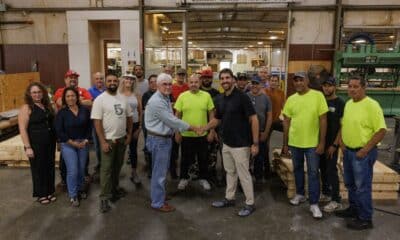Around Atlanta
A conversation with Aarti Tandon about the Smart City Expo Atlanta
Published
5 years agoon
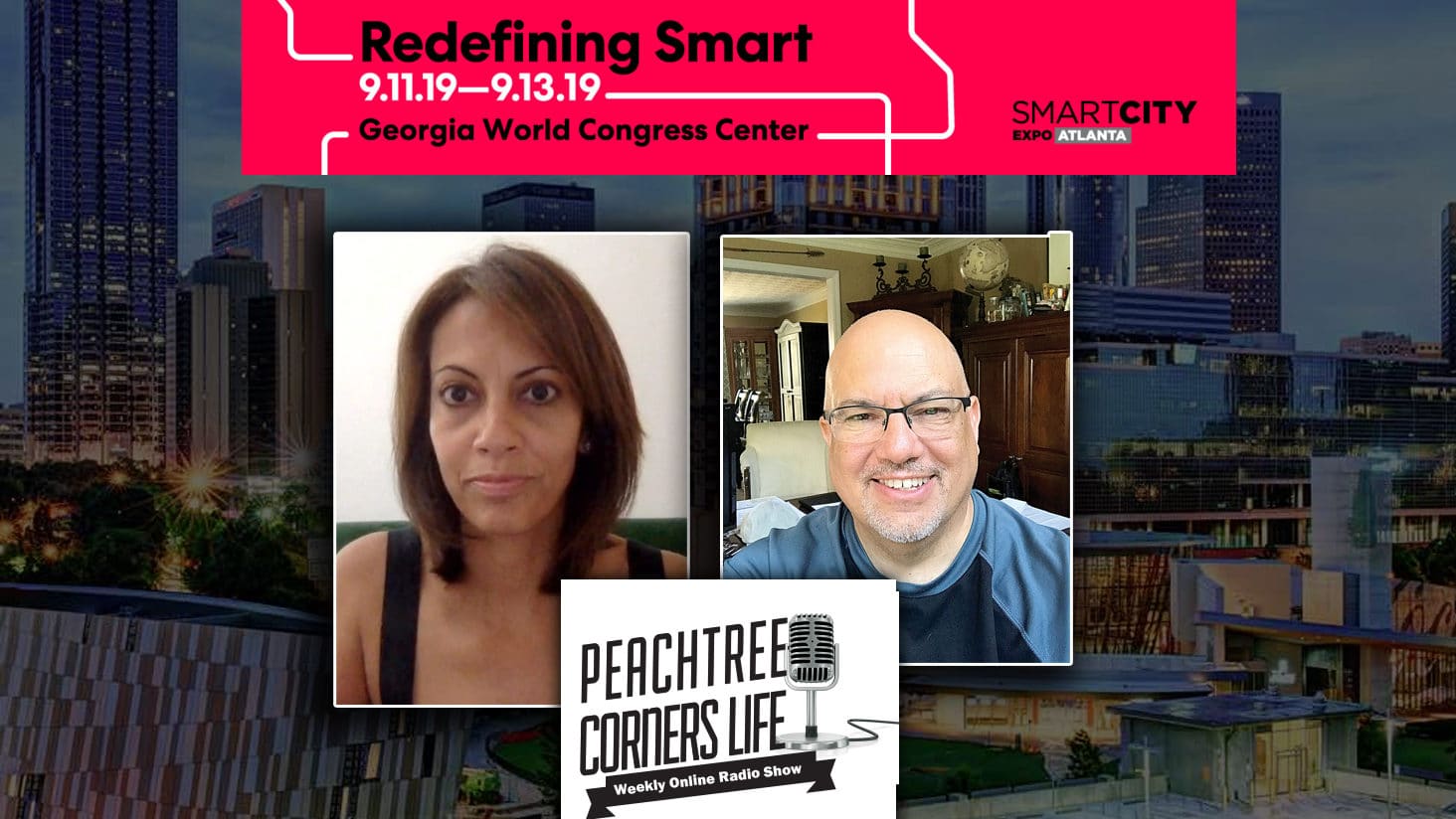
With the first Smart City Expo Atlanta coming up in less than two weeks, Rico sits down with Aarti Tandon, the CEO, and co-founder of the expo. Aarti talks about how they’re striving to redefine “smart” by bringing in the human aspect of innovation into their event. By bringing in younger generations, people from the public and private sector, CEOs of corporations to mayors to non-profits, Aarti shares how the United States’ first Smart City Expo will instigate essential conversations and dialogue about what the future of technology is, how its applications can impact cities, and how we all can reframe our mindset towards “smart” technology.
Resources
SmartCityExpoAtlanta.com
Email: info@smartcityexpoatlanta.com
Facebook: https://www.facebook.com/pg/SmartCityATL/photos/?tab=album&album_id=310784826476114
Instagram: @smartcityatl
Twitter: #SCATL19
“The conversation is so comprehensive. It’s micromobility, but it’s also building a workforce that’s not just the future of work, but how do you build dignity into the future of work. We talk about economic mobility. I think for us, in reframing the narrative, we want to talk about not just autonomous, electric and micromobility. We want to talk about social mobility, economic mobility. We want to talk about human capital alongside venture capital. And we want to make sure the infrastructure is equitable while it’s intelligent.”
Aarti Tandon, the CEO, and co-founder of smart city expo atlanta
Transcript of the podcast:
Rico [01:26 ]: Hi, this is Rico Figliolini, host of Peachtree Corners Life, a podcast that’s centered here in the city of Peachtree Corners, just north of Atlanta. The city of Atlanta that’s gonna be hosting, for the first time, the Smart City Expo Atlanta, which is an offshoot – it’s the US edition of the Smart City Expo World Congress that’s hosted every year since 2011 in Barcelona. And over the years, they’ve expanded to other cities like Brazil, Turkey, Japan, Mexico, Argentina – other countries – and this is the first time in the United States. So, what I want to do is bring on Aarti Tandon, who’s the cofounder of the Smart City Expo. So let’s bring her on. Hey Aarti, how are you?
Aarti [02:13 ]: Hi Rico, thanks for having me!
Rico [02:15 ]: No, this is great. I appreciate you bearing with me for the technical difficulties we were having before. But thank you for coming on.
Aarti [02:25 ]: My pleasure.
Rico [02:27 ]: So tell us a little bit about Aarti. Tell us who you are and how you got to Smart City Expo and stuff. Give us a brief.
Aarti [02:35 ]: Thank you for asking. So, I’m actually lawyer by trade, and many years ago, I was working in entertainment and after that, working at a project for a client of mine who was serving 14 years in federal prison. And I really understood what, at that time – how do we actually, really build an inclusive economy. I spent five years working pro bono for this case, and President Bush had granted a commutation to my client in 2008, and since then, I’ve been really trying to understand, you know, how do we use sports, entertainment and marry it with justice. I went on to produce a bunch of films, and then, in 2000, or actually probably three years ago, I was asked to be the executive director of Smart City New York. And in that process, I really wanted to talk about what makes a city smart. And sort of redefine the term. And we ended up having 2000 people from over 80 countries – over 30 countries. But we had the CEOs of UNICEF and Robin Hood and Boys and Girls Club in conversation with the Mastercards and the Microsofts. And we really felt that everyone had to have a seat at the table if we were going to make sure we had an inclusive, 21st century economy. And so last year, Mayor Bottoms was at our conference and I established a relationship with Vera, and we had decided, you know, she had a focus on developing strong Smart City strategy, and Atlanta would be an ideal place to host the first Smart City Expo World event in the US.
Rico [04:15 ]: So you were in – you helped run the Barcelona event, then?
Aarti [04:19 ]: No, I ran a separate New York event. It was just a Smart City conference.
Rico [04:24 ]: Oh, okay. So this is the big expo then.
Aarti [04:26 ]: This is the big one. Yeah. This is really exciting. So Smart City Expo World Congress, which is the original temple event that’s happened since 2011 in Barcelona, 20,000 people attend. It’s basically the CES for cities. And what’s interesting about it is that, the rest of the world has really been focused on smart city strategy. So when you think about actually countries that have had conflict, they’ve leapfrogged into the future because they didn’t have legacy issues to deal with that we have in the United States. And so they’re deploying all sorts of incredible work in Estonia and Kosovo and Rwanda. And so Smart City Expo World Congress has been convening these thought leaders since 2011.
Rico [05:12 ]: So, with the mayor of Atlanta talking – sort of getting it set up here in Atlanta. Now – you’re gonna – eventually it’s gonna be a three-year deal on this one.
Aarti [05:25 ]: Yeah. We – our goal is to really plant ourselves in Atlanta, right? That’s the temple event for the United States. And it’s hosted in Atlanta, but it’s actually a national event. And part of the reason for that is because a lot of the people from the public sector in the US can’t justify, or really afford, sending their CIOs to Barcelona. And so they’re missing out on a lot of the sharing of best practices that are happening, especially, you know, the Nordic countries are so ahead of us on circular economy and sustainability. People are working on cyber around the world. And so we really, genuinely felt that this conference is a national conference. And if you’re a CIO from South Dakota or Minnesota, you have the same challenges that most cities do, and we’d love to have them come and learn.
Rico [06:16 ]: So, and if I understand correctly too, there is – smart city is not just about corporations or upper or middle class people that can afford an iPhone ring or something like that. It’s really bringing it to an equitable position, right? All the people on the street, if you will, can feel the effects of a smart city. That’s what this theme is, I guess, for Atlanta?
Aarti [06:42 ]: Yeah. So our theme is – let’s redefine the term ‘smart’. People ask me all the time – the most inevitable question is, “What is a smart city?” And I did a presentation for the state department a few weeks ago, and my response was, increasing quality of life. And so, what does that mean? How do you use the data to increase quality of life? So my dear friend, the mayor of Helsinki – he says his goal is to give every citizen one hour back in their day. And if you come from that premise, right – you think about – so if you knew your train was gonna be 20 minutes late, you may take a bus, you may take a bike, you may do something else, right? So how you make those choices so you can go home and spend more time with your family? And that’s how we look at what makes a city smart is how we’re deploying the technology. I’d love to just give you a few examples. I know you’ve got a bunch of questions. So, NYU Langone, and he’s gonna be one of our speakers, Dr. Gorovich, did a study on population health, and the health of cities. So it’s affordable housing, transportation, the actual health. In a few cities, and one of the cities was Providence, Rhode Island, I believe. Again, we have 250 speakers, so if I’m missing something let me know. But one of the things he realized was absenteeism was a really big issue in Providence. So what do you do with that data? Well, the mayor ended up putting washing machines in the public schools, right? That is how you create equity. That is where you say, we’re gonna give every child the opportunity to learn, and we don’t want them to be ashamed that they can’t come to school, and we’re gonna make sure that they have a safe environment from which they can prosper. That to us is equity. Other examples of that are – you know, there are all these amazing energy-generating pavements that are being used in stadiums and universities. So you generate energy off of the foot traffic. Well, why don’t we put that on a basketball court in the Bronx? You want people to understand what the 21st century is gonna look like, and they think it’s robots and they think it’s automation. It’s also – let’s meet people where they are, and that’s how this conference is designed. And that’s why we’re redefining the term smart.
Rico [09:02 ]: That’s cool. Because lots of people think it’s Amazon delivering their stuff by drone. They can’t wait for that because it would be easy, I guess. delivery within an hour or two, right? Or an AI machine that would be able to almost predict what you may want in the next two hours. But I like that idea. And it’s not too far flung out to say that it could happen within years as opposed to within a decade or two.
Aarti [09:29 ]: It’s about a year. And I think what we’re doing is helping mayors in cities understand that it’s literally right here, but your constituents have to understand it. We have to meet people where they are. So, like, you mentioned drones. Drones can be scary to some people, and it also can be helpful in the sense where you reduce congestion on the streets. Right? So there has to be a balance, and that’s the key. That’s why the integrated approach to cities is so important. I think what happened in the past – it was like the smart water meter, the smart parking meter. And those are really important, but if they’re not interoperable, a city ends up not knowing what the right hand’s doing with its left hand.
Rico [10:10 ]: Does that almost mean that you want, sort of a, you know, this – the UI, right? Universal integration, right? That’s the problem with a lot of these smart devices. You have the apple iHome, or you have the iHome, the Apple Home, you have all these devices – Alexa and stuff. Can they integrate together? Can we – is there a highway that we can all go on, if you will?
Aarti [10:36 ]: And so one great way to look at that, Rico, is – so a few years ago, the city of Columbus won the big smart city transportation – the smart city challenge that was issued by the DOT. And I think 83 cities applied, and the reason Columbus won is because women couldn’t get to the hospital on time to deliver their babies. And they came from a very human issue and decided that if they won the grant, they would then adjust how their roads and their emergency response and how their police operated. So when you think about integration the way you just said it, how do we take a human problem and then get everybody to participate on that highway so that we can clear it? And so what happened was they ended up changing their bike lanes and their emergency response. And they ended up addressing climate issues, right? Because now they put in electric buses, and they created bus lanes. So the city started to move better, the environment was better, but it required everyone to come together and do that. So the interoperability doesn’t actually have to be between the technology. It actually has to be between the groups that are workin to solve the problem.
Rico [11:47 ]: And would you say that, I think some people think you have to invest a lot. Some cities would have to invest a lot to get there. But maybe that’s not the case, right? You have infrastructure money anyway. To spend it wisely makes more sense, no?
Aarti [12:03 ]: Yeah, so I think financing is a major issue in the US because we don’t have public partnership models as robust as the rest of the world. Like, Canada and Australia are leading the way in those places. I think the US also has a lot of procurement issues and, like, how do you get from pilot to deployment. Those are all issues we’re covering at the conference. And so, you know, financing mechanisms are key, and I think a lot of the private sectors looking to help figure out new models.
Rico [12:38 ]: So who would you say are the – some of the key players that will be speaking at the expo?
Aarti [12:45 ]: That’s my favorite question – I have literally 250 speakers, and so many of them are people – you know, of course, we’re so honored to have the CEOs of Cox, the CEO of Suntrust, the CEO of the Atlanta Braves, and all for different reasons. The CEO of Cox is working on his commitment to sustainability and innovation. HE’s funded tech stars, he’s funded carbon lighthouse – or invested in carbon light house. The CEO of Suntrust is so focused on financial inclusion, public private partnerships. The CEO of Atlanta Braves is obviously also focused on public private partnerships – think about all of the technology that’s advancing consumer experience inside a stadium, right? So we have all of them – we’re thrilled. We’ve got TI coming in to talk about the importance of – you know, how do you drive economic development within our communities, and he’s doing an incredible job that way. We have John Hope Bryant who will be in conversation with TI. But then we also have a woman named Veronica Scott who runs the empowerment plan. Who created a jacket for people who are homeless that turns into a sleeping bag.
Rico [13:54 ]: Oh, wow.
Aarti [13:55 ]: We’ve got such extraordinary entrepreneurs and innovators. We have a guy who basically has created a coral that regenerates or is helping to regenerate coral reefs. We’ve got, you know, obviously the best of the best soft bank robotics. We’ve got Block Rock coming to talk about social impact. We’ve got Cisco and we’ve got Southern Company – our founding partner. And they are doing extraordinary work to enable the infrastructure for a city to be smart.
Rico [14:25 ]: Yeah, will some of these companies be part of the exhibitors also?
Aarti [14:29 ]: Yes. We have 50 plus exhibitors. My colleague Adam Lennon has done an extraordinary job. We’ve got two tiny houses. We’ve got eight different EV/AV vehicles. We actually have the first autonomous, electric truck in the world by Einride. Know that we’ve got drones, and I know that we’ve got Bird doing an activation. So when you think about – you asked earlier in the podcast about, you know, what to expect. I mean, the conversation is so comprehensive. It’s micromobility, but it’s also building a workforce that’s not just the future of work, but how do you build dignity into the future of work. We talk about economic mobility. I think for us, in reframing the narrative, we wanna talk about not just autonomous, electric and micromobility. We want to talk about social mobility, economic mobility. We want to talk about human capital alongside venture capital. And we want to make sure the infrastructure is equitable while it’s intelligent.
Rico [15:39 ]: That’s exciting. I think that, you know – I have a kid that goes to some high school who just started last year, right? And I own a magazine called Peachtree Corners Magazine, and our next story in the next issue is about technology in the school and how that works. That’s the high school that has four days of school and one digital day. And doing online work.You know, it’s interesting to see how young people use technology. And in the easiest way. Because they’re growing up in that environment and don’t know different. So how – are there any exhibits or anything along the way that you can talk about that?
Aarti [16:20 ]: Well, you talked about young people and I’m so glad that you brought them up. For us, smart city is defined by every generation. So we actually have a Harvard debate, diversity council scholars, four high school seniors coming in to talk about how they envision the future of cities. We have people with disabilities being represented. We have the top – we have top disability commissioners in the country from Chicago, New York and LA coming to talk about – what does it mean to build an inclusive city? And the reason I bring it up is because, in New York City, the – to cross the street, it’s about 22 seconds, which is based on a 22 year old, white male. Now, think about the fact that, if you have a disability, or you’re a parent with a stroller, right? The city wasn’t designed for it to be accessible. And so, we have the youth, we have a lot of – we’re really focused on gender issues. Women leading smart cities. And we’re also making sure that minority communities are represented. And, just to go back to your STEM question again, I think the key for us is, you know, kids especially have new ways of learning and acting. And they’re almost like, they get to leap frog into the future, right? They don’t have the legacy issues that we do when working with technology. But when they find a real, life way of experiencing it, they’re inspired. So, like, a lot of kids in hip hop, for example, they learned about Nipsey Hussle Smart store out in LA. What happened to Nipsey was tragic and all of those things, but he – a lot of innovation is coming from these young people in the streets, and if we can harness them in a way that’s safe and exciting so it’s like, when they’re learning STEM, they can see the real life application for it, that’s a lot more exciting.
Rico [18:21 ]: I would think. And you’re right, I mean, they’re using technology at this point, so they’re not afraid of it. You have older people, and I’m sure in the cities across this country, there are a lot of older people, if you will, that are in positions of power. And I saw this when Congress originally – I think it was about a year ago – one of the communities talked about security online with Google and Facebook and stuff, and the questions they were asking were so out of pace with the real world. It was scary that these people actually – you would think that if given the right questions to ask. It just didn’t sound right. And so those are the people that have to be convinced that smart technology can be a great investment over a period of time. And they shouldn’t be looking short term, and the United States is very local oriented, as far as cars, right? We built our highways after World War II, I mean. If you look at Europe and other countries – Kyoto and other cities around the world – they don’t have a lot of cars, but they also have a lot of bikes. There’s a human traffic a lot different from – very different from here. Manhattan – I used to live in Brooklyn – in Manhattan, you wouldn’t want to cross the street because that bike is riding fast by, or that yellow cab was gonna, you know, cut the traffic or something. So, technology is a big thing. As far as the cities go, as far as the young people go in this building, are there other things we should be looking forward to at this expo?
Aarti [19:58 ]: Yeah. Well first of all, the opening at Peachtree Corners is very exciting, right? That speaks to everything that we’re doing because – to have the, I believe, it’s the second 1.5 mile autonomous test track in the country in Georgia. And basically, they’re saying, for free, we invite all these innovators to come and test their pilots and their innovations. I mean, that’s what people are looking for. And to have it powered – the 5G powered by Sprint. I mean, if we’re gonna get these kids inspired and take them out of the classroom and be able to have them demo their work, then that’s really important for us. And I think that’s what’s happening in the rest of the world is – you know, you talked about urban planning and cities and, you know, we just have to have a design of what we want our cities to look like. And have people move in that direction.
Rico [20:53 ]: I think so, too. It does take foresight. I know that when the city first started, that they had in mind that doing this – developing a smart city. So, they really put into their budget. They had forethought about doing that. And they had also an understanding, Brian Johnson city manager, the mayor and the council – an understanding that you want to be able to provide this environment – Curiosity Lab in Peachtree Corners – in a free way. Because it does provide economic impact on the city as well. So, you know, there is that. But I think being able to get ahead of this, because a lot of other cities will be looking at doing the same thing now, in the next decade or so. I mean we have Michigan that’s planning now. And so it’s exciting to see all of that, you know? You have Tesla moving forward with all the stuff they’re doing.
Aarti [21:47 ]: And the rest – I mean, you asked about some of the other people. I mean, one we’re really honored by is, first of all, the support from the private sector and the public sector. But we have almost ten mayors coming from across the country, and I – mayor of Honolulu to the mayor of Denver to the mayor of Montgomery, the mayor of Newark. And they’re all so different, and yet they have the same challenges. And to see how they’re addressing them, to see how they’re – I mean, we have the President of the US Conference of mayors – Mayor Barnett of Rochester Hills. And he, like so many other mayors, are excited about autonomous mobility because of the fact that – you know, most people don’t frame it this way. Autonomous mobility is going to help move people with disabilities and the elderly. And think about the impact that that will have in those communities, right? So they’re already embracing the innovation. The US Conference of Mayors – their platform is infrastructure, innovation and inclusion. And those are their three pillars. And the mayors are really rallying around it.
Rico [22:53 ]: You know what I like about this, Aarti? Is that you’re providing – the expo is not just, alright you have a lot of speakers, you have a lot of exhibitors. But it’s also providing a place for people to meet, to brainstorm, really. Because they’re gonna be talking about all sorts of things, and I know from experience and from listening to others that you start one way, and you wind up somewhere else, right? So mobile, mobility, having an autonomous vehicle – can that happen in five years or ten years? Maybe the delivery aspect of autonomous vehicles. Maybe the non person in the car, if you will. The pizza delivery for lack of a better way of looking at it, may happen sooner than, let’s say, a passenger riding for, you know, without having a steering wheel, practically. Like in, was it Blade Runner was the movie? So, I mean, that – that part might be a little further out, cause you have to build 5G –
Aarti [23:48 ]: Not as far out as you think, which is really the fascinating part of it. We’re not Dubai, where we have drone taxis, you know? Because they can sort of put up whatever they want in the air. But I will tell you that in conversation with former FAA advisors, they will tell you it’s right around the corner, and I’m sure, you know, Elaine Chao – Secretary Chao – she likes to use the word “self-driving”, not driverless. And they are, you know, putting in policies for that. Because you think about the stretch of roads across America, right? Just the trucking, like – you can – that’s why we have the first autonomous, electric truck to join us. I mean, they’re – it’s not that far. They’re changing FAA regulations for drones. Is it a little awkward? Yeah. Like, I was sitting outside of a friend’s place. There was a drone overhead, and I felt quite upset. Like, I felt so violated. But at the same time, if there is a way to start maximizing the air and, you know, creating more public space on the ground, that’s interesting. So, I don’t know the ramification.
Rico [24:54 ]: No no no. I agree with you. There are so many aspects to it. You have counties, you have cities, you have states, federal government – federal highway, state highway, state streets. I mean, there’s so many regulations that have to come into bear on this. And then the technology, like Sprint, I mean. There’s only certain amount of places that 5G enabled Sprint, right? Enabled areas and Sprint is one of the companies doing it. But one of the companies doing it with us in Technology Park, where our track is at. And so, because you really can’t have autonomous vehicles without that 5G –
Aarti [25:29 ]: Right, with the infrastructure.
Rico [25:30] : So, just a lot of stuff. A lot of interesting – it’s almost like sci-fi in a way, but it’s really not because it’s almost like near future, what’s gonna happen.
Aarti [25:39 ]: Right, right. And I think it’s so important communicating that to the public. They should feel part of it. That’s why I used the basketball example, like, if they understood the technology could benefit them – yes, there’s a lot of issues around it. I’ll be the first to say, predictive analytics, the criminal justice space – things like that are major issues. But, you know, the one thing Europe has is GDPR, which we don’t have in terms of privacy, which, you know, scares people. And rightfully so. So I think that there are issues around that. But, you know, part of this is what you said. It’s to have a dialogue, for people to understand and to reframe their thinking. And to help people understand that they, too, have a role in the 21st century.
Rico [26:22 ]: Yeah, I think as much as Americans believe that we’re exceptional to a degree, and that we sort of drive technology or the future in some way, there’s a lot of different thinking outside the US. Right? Europeans, with their privacy – and some of the American companies are adopting anyway, because they know it’s gonna come this way. And then you have a place like Japan with robotics because of their aging population. Now, how do you handle that, you know? People think robots like arms and legs, but it doesn’t have to be. Could be a box, I mean, it’s whatever it needs to be. So great stuff. If someone wants to be able to attend, this is over the 11th, 12th, 13th and 14th?
Aarti [27:05 ]: No, it’s the 11th, 12th and 13th and the Georgia World Congress Center. Tickets can be purchased at www.SmartCityExpoAtlanta.com. I literally just dated myself because your child would just say SmartCityExpoAtlanta.com, and I put the “www” in front of it. And, but you know, they can reach out to us at info@SmartCityExpoAtlanta.com. We’re happy to answer any questions. If people would like to attend the exhibit or are just curious, we love to engage and have them be part of this community.
Rico [27:41 ]: What about – can they follow on Instagram, Twitter, Facebook?
Aarti [27:49 ]: Yes, at @SCAtl and #SCAtl, I believe, are the handles. My team might kill me that I don’t know that off the bat, but I do believe that those are it. And maybe you could post it when you post this.
Rico [28:06 ]: I think you are right. I think that is correct. And in fact, in the show notes, when people are listening to the podcast on this and on YouTube, I’ll have it in the links below, so feel free to look through that. And I’ll tag the Facebook page when this is up and going.
Aarti [28:22 ]: Perfect. And can I just – yes. And I’ll send you a link. Perfect, great.
Rico [28:29 ]: So I’m gonna sign off, but you hang in there with me, Aarti. Thank you everyone for being with us. This is an interview with Aarti Tandon, CEO and co-founder of Smart City Expo Atlanta. My name is Rico Figliolini, host of Peachtree Corners Life, publisher of Peachtree Corners Magazine. Find us at LivinginPeachtreeCorners.com. I appreciate you joining us. Thank you.
Related
Around Atlanta
Greek Film Expo Brings Acclaimed Features and Short Films to Atlanta
Published
2 weeks agoon
October 7, 2024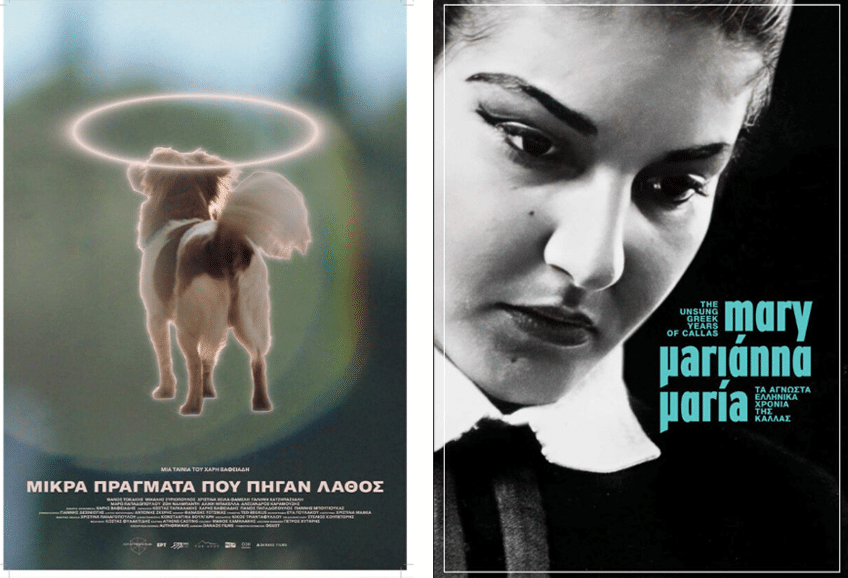
The 9th annual Atlanta Greek Film Expo will showcase five critically acclaimed Greek feature films (all with English subtitles) and four short films on October 25–27 at the iconic Tara Theatre on Cheshire Bridge Road.
With the goal of elevating and promoting Hellenic (Greek) culture and arts in Atlanta, the annual expo showcases some of the most dynamic, innovative and highly acclaimed films from Greece and Cypress.
One of the films showing at this year’s event, Murderess, is Greece’s submission for Best International Feature Film at the 97th Annual Academy Awards (which will air in 2025).
Free parking will be available at the venue each day of the expo. And the three-day event concludes with an open-to-the-public, celebratory closing reception at the Hellenic Center, located at 2500 Clairmont Road, NE.
Atlanta Greek Film Expo Schedule
Friday, October 25, 7 pm — Little Things That Went Wrong
This comedic drama is a clever and touching exploration of fatherhood, failure and redemption.
Saturday, October 26, 4 pm — Mary, Marianna, Maria
A documentary which chronicles the early years of Maria Callas in Greece, offering a rare and insightful look into her formative years.
Saturday, October 26, 7 pm — Murderess
This year’s Oscar entry for Greece offers a dark portrayal of moral and existential dilemmas, staying true to the literary masterpiece by Alexandros Papadiamantis.
Sunday, October 27, 2 pm — Guest Star
A satirical and engaging film that explores themes of fame, personal identity and the often absurd nature of public personas.
Sunday, October 27, 5 pm — The Last Taxi Driver
A gripping drama that delves into obsession, unfulfilled dreams and the hidden turmoil beneath a seemingly ordinary life.
Sunday, October 27, 7:30 pm — IT’S A WRAP Closing Reception
Eat, drink and celebrate in Greek style at the beautiful Hellenic Center!
Tickets and information
Ticket prices range from $10-$25 for the films and $45 for the closing reception. Special VIP and Film Lover packages are also available.
For more information or to purchase tickets, visit atlantagreekfilm.org.
If you have questions about the event, email atlantagreekfilm@gmail.com.
Related
Around Atlanta
Local Artist Represented by Fay Gold Gallery at Upcoming Atlanta Art Fair
Published
3 weeks agoon
October 2, 2024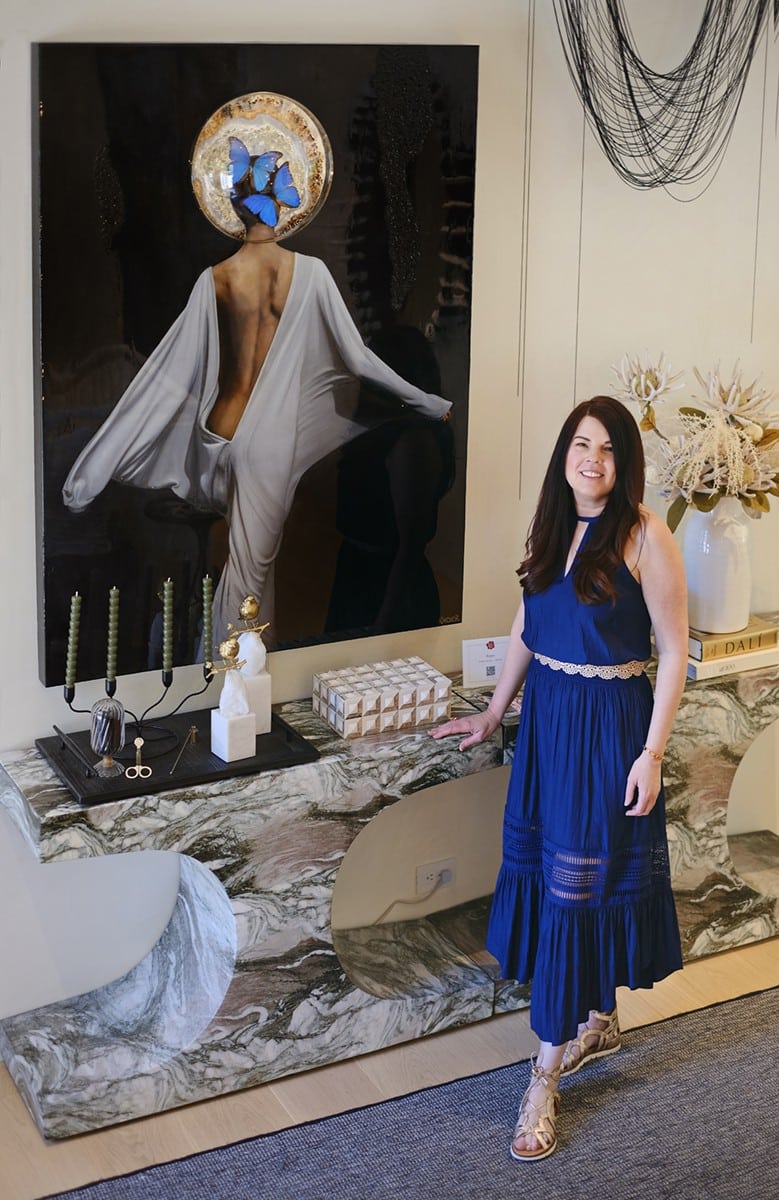
Local artist and Peachtree Corners resident, Amy Rader, will be part of the first-ever Atlanta Art Fair, being held at Pullman Yards October 3–6. The fair will feature local galleries, artists and curators alongside a variety of national programs and a dynamic series of public art projects and events presented at locations around town.

Aimed at amplifying local voices and acting as a platform for the city’s incredible creativity, the Atlanta Art Fair — the first major art fair of its kind in the city — will showcase a wide range of artistic styles and genres, including contemporary work, paintings, photography, live performances and innovative projects.
Represented by the esteemed Fay Gold Gallery, Rader will have several pieces on show at the Fay Gold Booth E07, something the artist is thrilled about, as her connection to Gold spans three decades.
“In 1993, while still in high school, I attended a summer arts program at Lagrange College,” Rader recalled. “We took a field trip to visit the top gallery in Atlanta — the Fay Gold Gallery. I stood in awe of the marvelous pieces on display … [Later] after years working with ad agencies for Fortune 500 clients, I was ready to leave my career in graphic design to pursue art full time. Showing my work at a gallery in Buckhead introduced me to Fay Gold 29 years after that visit in 1993. It was a full circle moment.”
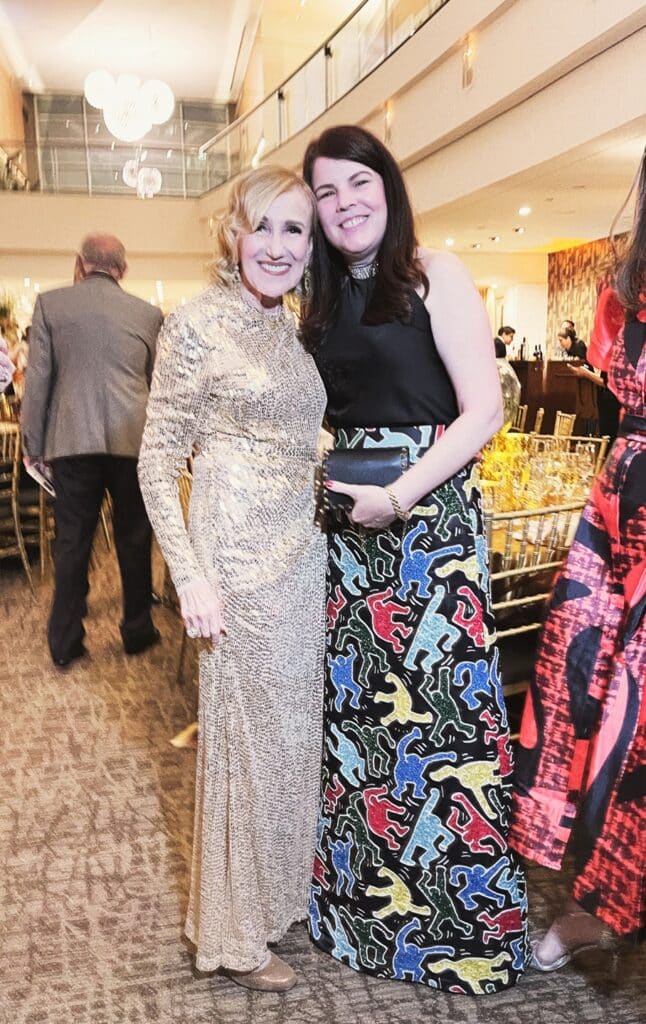
A local legend
An Atlanta art legend, Fay Gold is best known for her groundbreaking exhibitions of artists such as Jean-Michel Basquiat, Cindy Sherman, Keith Haring, Andres Serrano and Robert Mapplethorpe.
She curated the formative years of Elton John’s personal art collection and raised $750,000 for the Elton John Aids Foundation by creating and chairing two art auctions for the organization. Over the years, she’s also worked with corporate clients and has received dozens of awards for her many contributions to the Atlanta art scene.
Fay Gold represented Rader’s work in a successful art show in 2022 followed by an art auction in 2023 and now at the Atlanta Art Fair in 2024.

A lifelong love of art
In love with art from an early age, Rader was encouraged by a high school teacher to apply to art school, which she did, receiving a scholarship from the Art Institute of Atlanta and graduating from the (now-closed) art school with the Best Portfolio Award. For the past 25+ years Rader has worked within the design and art fields, building an impressive body of work, with a particular focus on creating traditional art and large-scale pieces for hospitality spaces.
Her work can be seen in galleries, private collections, luxury buildings, restaurants and more, including the Buckhead Art & Company Gallery, The Hue Midtown and Chops restaurant in Buckhead.
According to her website, Rader’s notable accomplishments include “being selected to represented Tesla and Microsoft at Art Basel, commissioned work for a new Lake Nona project with Tavistock, creating custom pieces for two $140 million luxury Related Group buildings and commissioned work for Norwegian Cruise Line’s new Prima ships.”

Rader is especially excited about the Atlanta Art Fair — not just being part of it, but the fact that it’s happening at all.
“This is such a big deal for the arts community,” said Rader. “The Art Fair is a wonderful addition to Atlanta’s cultural offerings. I’m describing it as our very own ‘Art Basel’ level fair, with both national and international galleries. We are used to art festivals, but this is a different caliber of event by the producers behind the San Francisco Art Fair, Seattle Art Fair and Art on Paper New York.”
The details
The Atlanta Art Fair takes place at Pullman Yards and other venues throughout the city, October 3–6. Schedules, artist lists, tickets and additional information can be found online at theatlantaartfair.com.
For more about Amy Rader, visit raderdesigns.net.
To learn more about Fay Gold and the Fay Gold Gallery, visit faygoldgallery.com.
Related
Around Atlanta
Brennan Lee Mulligan, DrLupo, Biqtch Puddin’ and More Headline Action-Packed DreamHack Atlanta Lineup
Published
1 month agoon
September 23, 2024
Three-day gaming lifestyle festival brings best of gaming, tabletop roleplaying, indies, music, esports and cosplay to the Big Peach
DreamHack (ESL FACEIT Group’s international gaming lifestyle festival) has announced exciting new guests and programming taking place at this year’s DreamHack Atlanta, October 4–6 at the Georgia World Congress Center.
Brennan Lee Mulligan returns to DreamHack alongside the festival’s largest-ever Dungeons & Dragons area. World-class creators, including DrLupo, and the Atlanta debut of the Drag & Drop cosplay drag show hosted by local performer Biqtch Puddin’ are also on the schedule.

“DreamHack features the best of gaming culture from all over the world right here in Atlanta,” said Guy Blomberg, director of festivals, North America, DreamHack. “We’re bringing the best global talent and highlighting local developers, streamers, performers and storytellers to create a celebration of everything to do with gaming.”
Over 20 of the biggest names from Dimension 20, Critical Roll, Lynvannder and more expand DreamHack’s roleplaying offerings
Following his DreamHack debut this summer, Dropout’s resident Dungeon Master Brennan Lee Mulligan returns to DreamHack with an all-star cast of adventurers. Joined by Zac Oyama, Erika Ishii, Anjali BhimaniandAliza Pearl, the party will explore an all-new one-shot adventure designed specifically for DreamHack Atlanta.
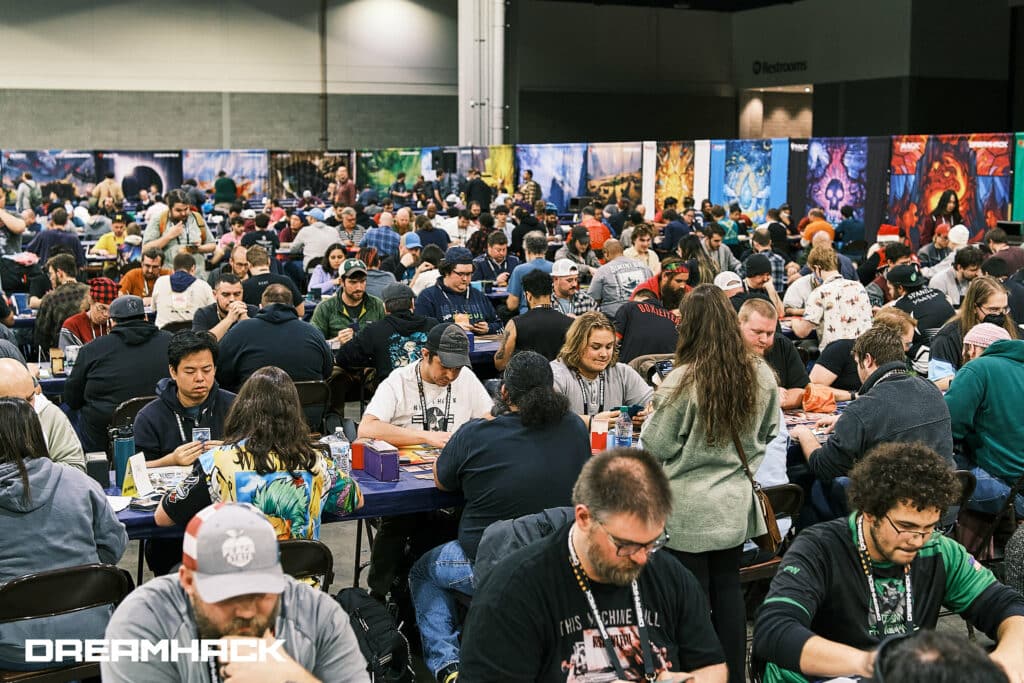
Fans can also step into the Tabletop Tavern, a dedicated stage for live roleplaying game content presented in partnership with Lynnvander. Veteran storytellers, writers and actors will join forces for a slew of custom adventures. Special guests include worldbuilder and dungeon master Jasmine Bhullar, writer and actress Rekha Shankar, game designer and writer Keith Baker, voice actress Mela Lee and many more.
The LEGO Group makes DreamHack Atlanta debut with all-new Builders Zone
DreamHack guests can expand on the games they know and love through the unlimited creative opportunities of LEGO®️ bricks at DreamHack Atlanta’s all-new Builders Zone, sponsored by the LEGO Group. Attendees can participate in gaming-themed make-and-take builds, contribute to the LEGO brick-built mystery mural on-site or even participate in DreamHack Quests for a chance to take home new LEGO sets. DreamHack will also invite creators to the Main Stage for a competition to celebrate gamers’ creative LEGO builds at the festival — with special guests to be announced.

DreamHack Atlanta hosts largest-ever Indie Playground and Artist Alley
DreamHack’s Indie Playground and Artist Alley will have their largest footprints yet, with 60 game developers as well as 60 more independent artists — almost half of which are Atlanta locals. In addition to exploring booths, guests can participate in the Artist Alley Stamp Rally, trade unique pins at the pin swap board, trick-or-treat with vendors and get hands-on with up-and-coming video games. Both the Artist Alley and Indie Playground are open to all guests daily from 12 to 6 p.m.
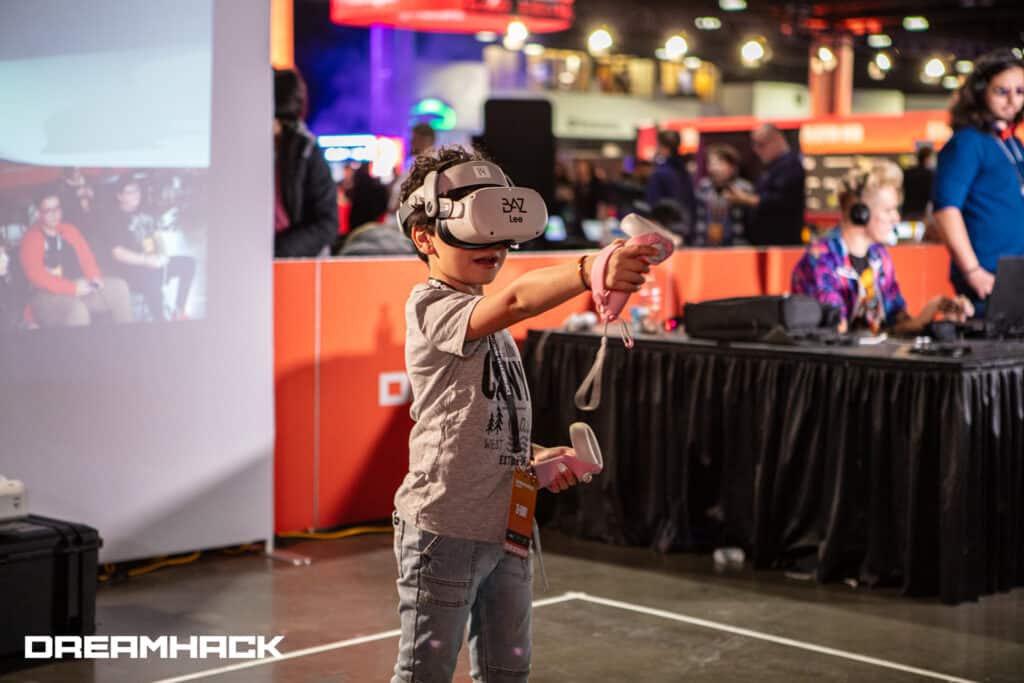
Drag & Drop cosplay drag show returns with Atlanta debut
Drag & Drop, the festival’s flagship cosplay drag show, will return after its debut at DreamHack Dallas. Hosted by Emmy-nominated artist Biqtch Puddin’, the show will feature a host of new nerdy performances and performers who slay video game bosses, and looks. Participating artists include Brigitte Bidet, LaZanya Ontré, Dotte Com and more.

Drag & Drop complements a full weekend of cosplay programming for attendees. The festival’s cosplay competition on Saturday, will be judged by an all-star cast of professional cosplayers, including Atlanta-native Pumpkin.Pixie.Princess and host Jahara Jayde.
DreamHack Atlanta sets record with over 500 creator guests, including Jake Lucky, bbjess and more
This year’s DreamHack Atlanta will host the largest creator cohort ever for a DreamHack Atlanta festival, with over 500 local and national influencers onsite. After receiving a record-setting number of applications, DreamHack Atlanta’s host of content creators will participate in Main Stage competitions, host meet & greets with fans and stream live from DreamHack’s Creator Hub. Top guests include Main Stage emcee bbjess, creator interview experts Jake Lucky and HUN2R, veteran streamers DrLupo (hosted in partnership with Anthros) and Amouranth and more.

Georgia FIRST Robotics brings local high schoolers to DreamHack for STEM showcase
Georgia high school students from across the state will take part in Georgia FIRST Robotics’ interactive showcase live at DreamHack Atlanta. The program requires students and their peers to collaborate on creating their own industrial-size robots to go head-to-head in challenging field games. Students are behind it all — from raising funds to designing their teams’ brand to building and piloting their robots — and the festival’s showcase will highlight the work that goes into making these high-tech machinations.
All of this is just one slice of what DreamHack Atlanta 2024 has to offer.

The details
DreamHack Atlanta takes place at the Georgia World Congress Center on October 4–6
For more information on competitions at DreamHack Atlanta — including world-class esports tournaments, grassroots competition in the Freeplay area, cosplay contests and more —click here.
Tickets are still available and start at $45 for a single day or $109 for three-day access.
For more information or to purchase tickets, visit dreamhack.com/atlanta/tickets/.
Related
Read the Digital Edition
Subscribe
Keep Up With Peachtree Corners News
Join our mailing list to receive the latest news and updates from our team.
You have Successfully Subscribed!

TransPak Acquires Reid Packaging to Expand East Coast Presence

Peachtree Corners City Leaders Engage Residents on Land Use Development

The NOW Massage Opens Peachtree Corners Boutique at The Forum

GCPL Accepting Applications for Next New Start Entrepreneurship Incubator

Ruwa Romman’s Re-Election Bid: Addressing Housing, Taxes and Transportation in Gwinnett [Podcast]

Councilmember Sadd to Host Town Hall Meeting on October 29

PTC Arts Inc. Furthers Mission to Provide Accessible Art

From Corporate to Sci-Fi Author: Jill Tew Discusses ‘The Dividing Sky’ [Podcast]

From Corporate to Sci-Fi Author: Jill Tew Discusses ‘The Dividing Sky’ [Podcast]

PTC Arts Inc. Furthers Mission to Provide Accessible Art

Councilmember Sadd to Host Town Hall Meeting on October 29

Ruwa Romman’s Re-Election Bid: Addressing Housing, Taxes and Transportation in Gwinnett [Podcast]

GCPL Accepting Applications for Next New Start Entrepreneurship Incubator

TransPak Acquires Reid Packaging to Expand East Coast Presence

The NOW Massage Opens Peachtree Corners Boutique at The Forum

Peachtree Corners City Leaders Engage Residents on Land Use Development

Light up the Corners [Video]

Capitalist Sage: Business Leadership in Your Community [Podcast]

Cliff Bramble: A Culinary Adventure through Italy

Top 10 Brunch Places in Gwinnett County

A Hunger for Hospitality

THE CORNERS EPISODE 3 – BLAXICAN PART 1

Top 10 Indoor Things To Do This Winter

The ED Hour: What it takes to Remove Barriers from Education

Peachtree Corners Life
Topics and Categories
Trending
-
Business1 week ago
TransPak Acquires Reid Packaging to Expand East Coast Presence
-
Health & Wellness1 week ago
The NOW Massage Opens Peachtree Corners Boutique at The Forum
-
Community5 days ago
GCPL Accepting Applications for Next New Start Entrepreneurship Incubator
-
Peachtree Corners Life4 days ago
Ruwa Romman’s Re-Election Bid: Addressing Housing, Taxes and Transportation in Gwinnett [Podcast]





